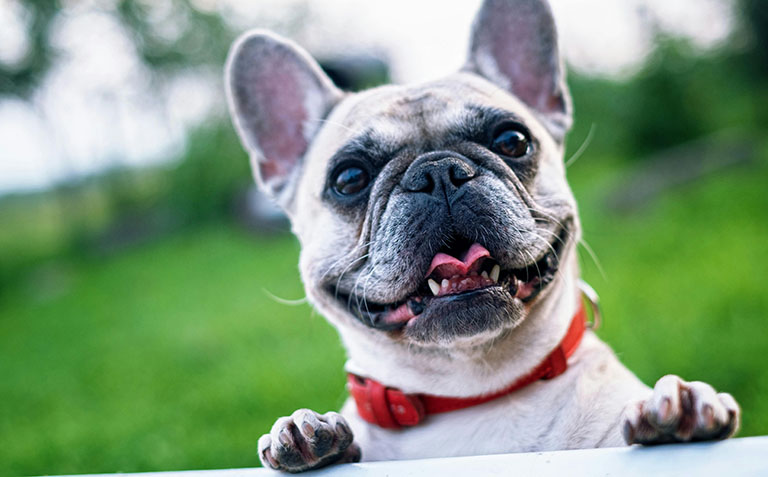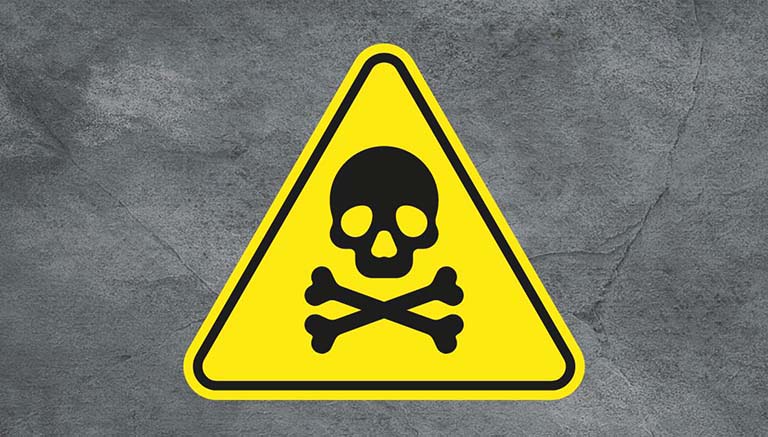As pet owners, ensuring the safety and well-being of our furry companions is a top priority. One often overlooked aspect of pet care is poison prevention. Many common household items can be toxic to animals, posing serious health risks if ingested. In this blog, we’ll explore some of the common sources of pet poisoning, explain the signs that your pet has been poisoned, list the immediate actions to take and provide practical tips for keeping your pet safe.
Common Household Items the are Poisonous to Pets
Foods
When it comes to the culinary delights that we enjoy, it’s crucial to recognize that not all foods are safe for our furry friends. Dogs and cats have different digestive systems than humans, making them susceptible to certain foods that can be harmless to us but toxic to them. Among the most dangerous are avocado, chocolate, grapes/raisins, onion, garlic, xylitol and macadamia nuts. Each of these items harbors specific toxins that can adversely affect the animal’s body in various ways. For detailed information on how these foods impact pets, continue reading here.

Household Chemicals
Household chemicals are common in our homes, but many of them can pose serious risks to your cats and dogs if ingested or even exposed to their skin or eyes. Cleaning products, while essential for maintaining a clean home, often contain harsh chemicals that can be toxic to animals. Antifreeze, commonly used in cars during colder months, has a sweet taste that can be enticing to pets but is highly poisonous. Pesticides, whether used indoors or in the yard, can also be harmful to pets if they come in contact with it while it’s still wet. Additionally, chlorine bleach can be highly toxic to pets if it’s consumed or contacts their skin or fur.
Medications
Medications, whether over-the-counter or prescription, are poisonous to our pets if consumed. Common household medications such as painkillers, antidepressants and cold medicines can be particularly dangerous. It’s crucial to recognize that pets metabolize medications differently than humans, meaning drugs deemed safe for us, and even for children, can lead to severe poisoning in pets.
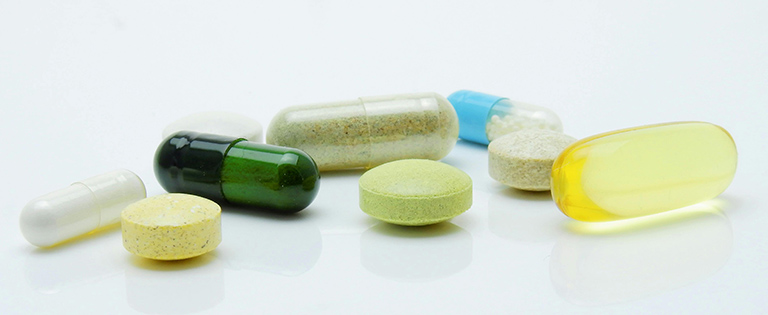
Plants
The beauty and greenery that plants add to our homes and gardens can be beneficial to us, but unwittingly may be detrimental to our beloved furry friends. Among the common houseplants, varieties like lilies, ivy and philodendron can be toxic to pets if nibbled on or eaten. Even outdoor plants can harbor hidden hazards. Azaleas, oleander and sago palm are just a few examples of outdoor plants that can prove harmful if curious animals decide to do a taste test. To read a more compiled list of toxic plants to pets, click here.
Other Hazardous Items
Objects that seem unimportant at first glance can have a great negative effect on pets if ingested. Batteries, often found in various electronic devices around the home, contain chemicals that can be toxic if punctured or chewed on by cats or dogs. Certain types of glue, including those used in crafting or home repair projects, can also be hazardous if ingested by cats or dogs. Even some types of mulch, such as cocoa mulch, are harmful to pets if consumed because of the presence of toxins.
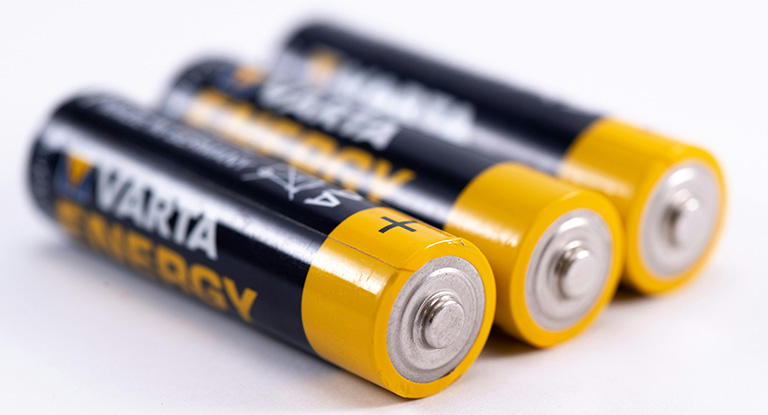
Signs of Poisoning in Pets
It’s essential to be able to recognize the signs of poisoning in pets so that you can act quickly to get them the help they need. Symptoms may vary depending on the type of poison and the amount consumed.
Behavioral Changes
Changes in an animal’s behavior can often serve as early indicators of potential health issues, including poisoning. Symptoms such as lethargy, where pets display unusual tiredness or lack of energy, could signal underlying toxicity. Conversely, agitation or restlessness may indicate discomfort or distress caused by ingesting harmful substances. Confusion, another concerning behavioral change, can manifest as disorientation or unusual behavior patterns.
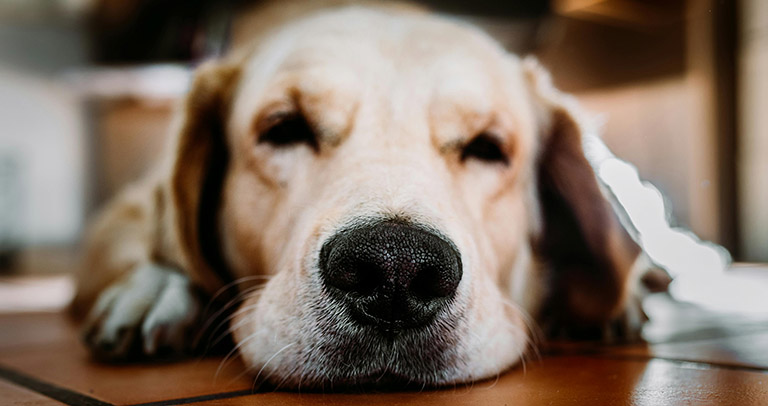
Gastrointestinal Symptoms
If your furry friend starts vomiting or experiencing diarrhea unexpectedly, it could be a sign they have consumed something poisonous. Excessive drooling, beyond what is typical for your pets, may also accompany these symptoms and be a sign of discomfort or irritation in the mouth or throat. While occasional vomiting or diarrhea may not always be cause for alarm, persistent or severe gastrointestinal symptoms warrant immediate attention from a veterinarian.
Neurological symptoms
Neurological symptoms in pets, such as seizures, tremors or paralysis, can be alarming and a sign that a dangerous substance was eaten. Seizures, characterized by uncontrollable shaking or convulsions, can be particularly distressing for both pets and their owners. Tremors, which involve involuntary trembling and shaking, may also signal neurological dysfunction. In severe cases, paralysis, where pets lose the ability to move one or more parts of their body, can occur.
Respiratory Distress
Difficulty breathing or respiratory distress is a concerning symptom that can be connected to a poisoned pet. If your cat or dog experiences labored breathing, wheezing or gasping for air, it’s essential to act quickly. Respiratory distress can occur as a result of ingesting toxic substances, which can irritate the respiratory tract or even cause lung damage. Additionally, some poisons may affect the nervous system, leading to paralysis of the muscles required for breathing.
Other Potential Signs
Stomach ulcerations and bleeding from the gut are among the critical concerns that can arise in cases of poisoning. When toxic substances are ingested, they can cause significant damage to the delicate lining of the gastrointestinal tract, leading to internal bleeding and ulcerations. This can result in symptoms such as blood in the vomit or stool, black tarry stools or abdominal pain.
High temperature and elevated blood pressure may suggest the body’s response to toxic substances, while abnormal heart rhythm can result from direct effects of poisoning on the cardiovascular system. Kidney failure is a concerning complication, as it can lead to severe illness or even death if left untreated.
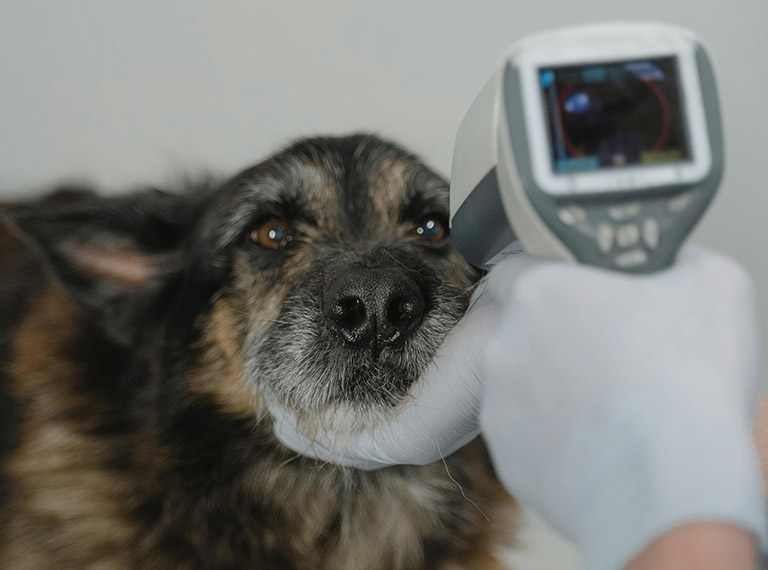
Immediate Actions to Take if Your Pet is Poisoned
If you suspect that your cat or dog has been poisoned, swift action is crucial to ensure their safety and well-being. The first step is to contact your veterinarian or pet poison helpline for expert guidance on what to do next. Depending on the situation, they may recommend inducing vomiting to expel the toxic substance from your pet’s system or administering activated charcoal to help absorb the poison. It’s important to follow their instructions carefully and avoid giving your pet any medications or treatments without professional input. Once initial steps have been taken, promptly transport your pet to the nearest veterinary clinic or emergency animal hospital for further evaluation and treatment. Time is of the essence in cases of poisoning, so don’t hesitate to seek help immediately if you think your pet has eaten something harmful.

Preventive Measures to Keep Your Pet Safe
Preventing pet poisoning begins with taking proactive measures to eliminate potential hazards from your home and surroundings.
Storing Hazardous Items Securely Out of Reach
Ensuring the safety of your pet involves the prevention of their access to hazardous items within your home. One of the most effective ways to achieve this is by securely storing potentially harmful substances out of reach of curious paws. Cabinets or locked closets are ideal storage locations, as they provide a barrier that prevents pets from accidentally getting at toxic materials. By keeping household chemicals, medications and other dangerous items safely tucked away, pet owners can greatly reduce the chances of accidental poisoning. It’s a good idea to routinely check these storage areas to ensure that they remain securely closed.
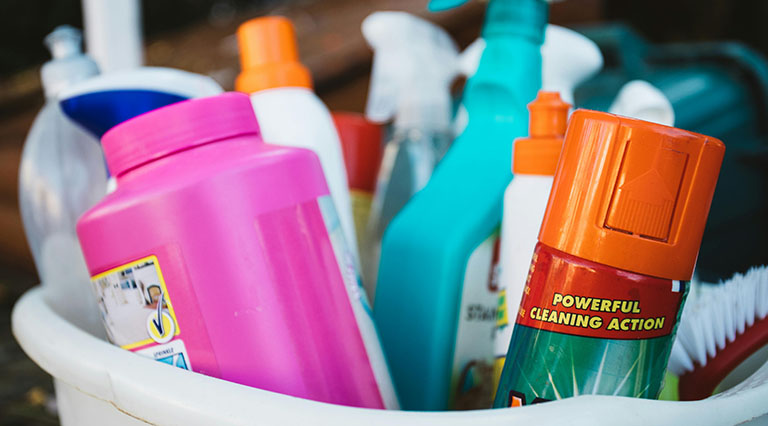
Properly Disposing of Toxic Substances
Proper disposal of toxic substances is paramount in safeguarding the health and well-being of beloved pets. Whether it’s expired medications or household chemicals, guaranteeing that these items are removed responsibly is important. Medications should never be flushed down the toilet or thrown in the trash, as they can contaminate water sources and pose risks to wildlife. Instead, check your local pharmacy or veterinary clinic for safe disposal options. Household chemicals should also be disposed of according to local regulations. Many communities offer special collection days or drop-off locations for these items.
Avoid Feeding Pets Harmful Foods
Understanding what foods are safe and unsafe for your cat or dog to consume is key in preventing consumption of harmful substances. This becomes particularly important during holidays and special gatherings when guests may not be aware of pet food rules. It’s important to be vigilant about what items are within your pet’s reach and communicate with guests which foods are not allowed for your furry friend. Training your pet to refrain from excessive begging for food is beneficial for both you and your guests, reducing the temptation to indulge them. To prevent pets from accessing hazardous leftover food, seal it in a bag and make sure that it is placed in a trash can with a secure lid.
Identifying and Removing Toxic Plants
Identify and remove toxic plants from both indoor spaces and outdoor yards. When selecting new greenery for your home and garden, opt for pet-safe alternatives to replace them. Alternatively, you can place toxic plants in areas inaccessible to your pets, such as on high shelves or behind fences in the garden.
Safe Environment for Pets
Pet poisoning is a serious concern that requires proactive measures and vigilance from pet owners. By being aware of common household items, foods, plants, medications and other items that can be toxic to pets, we can take steps to prevent accidental ingestion and keep our furry companions safe. Recognizing the signs of poisoning and knowing what immediate actions to take in case of an emergency are crucial for swift and effective treatment. Additionally, implementing preventive measures such as securely storing hazardous items, properly disposing of toxic substances and avoiding feeding pets harmful foods can help reduce the risk of poisoning incidents. By prioritizing the safety and well-being of our pets, we create a healthy and safe environment for them to thrive in.
